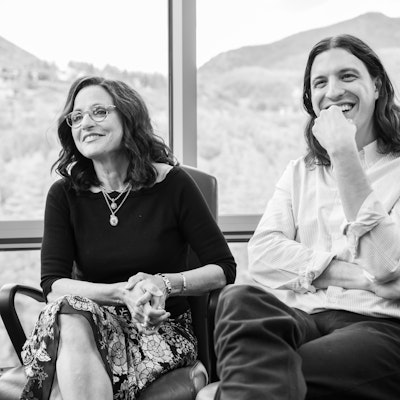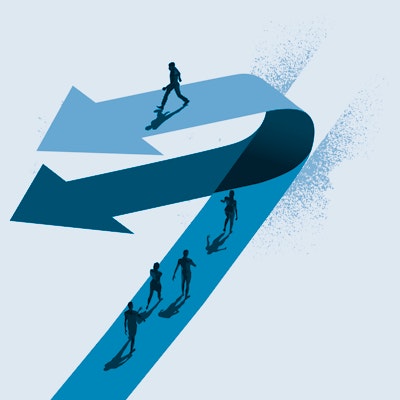Setup
In Palaces for the People, New York Times best-selling author Eric Klinenberg believes that the future of democratic societies rests not simply on shared values but on shared spaces: the libraries, childcare centers, bookstores, churches, synagogues, and parks where crucial, sometimes life-saving connections, are formed. In this eye-opening and uplifting session, Klinenberg urges us to acknowledge the crucial role these spaces play in civic life. Our social infrastructure could be the key to bridging our seemingly unbridgeable divides—and safeguarding democracy. But only if we recognize its untapped power. Stick around after the event for a book signing with Eric Klinenberg.
Explore More
Arts


Julia Louis-Dreyfus has kept us laughing for years in her roles as Elaine Benes in “Seinfeld” and Selina Meyer in “Veep.” But her most recent work has her shifting from comedy...


Living as a trans person in America comes with its share of challenges, which are sometimes even life-threatening. But some say it can also open up access to incredible freedo...


It’s a tough time to try and express the complexity of life honestly. Writer Chimamanda Ngozi Adichie doesn’t shy away from truth-telling and believes we should all step up an...

Global conflicts and health crises have put into stark relief deeply-ingrained gender roles in society. Yet the past years have also seen record-high numbers of women running...


Creativity is as intrinsic to our species as any of our basic instincts, says Debbie Millman, designer and curator. But for millions of people in the United States, the abilit...


The entertainment industry has had to pivot and refresh time and again to adapt to constant changes in format, business models and attention spans. Somehow, producer Brian Gra...

The people in our lives shape who we are. But great relationships don’t just happen — they take care, intention, and ongoing effort. How do you know when to let go, adjust exp...


Advances in medicine and healthy living mean that more and more people will live to be 100. But just because their bodies can last doesn’t mean their bank accounts will keep u...


In the early days of cable television, there wasn’t a single network aimed at Black audiences. Sheila Johnson and her husband at the time saw an opening, and put all their hop...

Of course, Black history shouldn’t just be a month-long nod on our yearly calendar — it is inextricable from American history and fundamental to the very soul of our nation an...


Owning a professional sports team is not for the faint of heart. Results are volatile and wins and losses come with the strong emotions of a city’s fan base. But it’s a sound...


Looking around and experiencing the suffering and injustice in the world can make it difficult to believe that happiness exists. But the Judeo-Christian tradition teaches that...


Millions of children across America don’t have art classes in school and don’t grow up going to art museums and galleries. They might be hours away from the closest museum, or...


This episode is from the 2022 Aspen Ideas Festival, but we’re bringing it back because it’s still as relevant as ever. Though it can sometimes feel like conflict and discord i...


Sir Ken Robinson believed that as a society, we tragically underestimate and underutilize human ability. We create linear systems for our minds modeled on industry and manufac...


Young people in America are struggling. The causes are varied and may not be entirely clear, but the results are unfortunately unmistakable. Many of our youth feel lonely, iso...


Many more Americans are struggling to survive and make ends meet than is typically portrayed in the media and public policy debates. And when poverty is depicted, harmful and...

October is National Book Month, and we’re celebrating by looking back at some of our favorite conversations about reading and writing from the Aspen Ideas Festival and Aspen I...

New York Times columnist and bestselling author David Brooks is known for bringing his thoughtful reflections on politics and culture, but at this year’s Aspen Ideas Festival,...

Jump in by watching our 15 most popular talks of all time. From black holes to jazz and civil rights to psychology hacks, we've collected the talks that remain audience favori...






